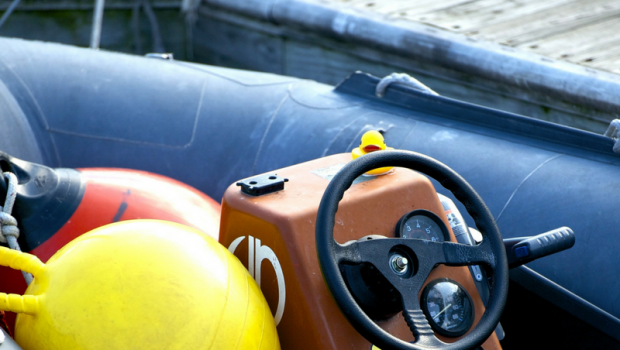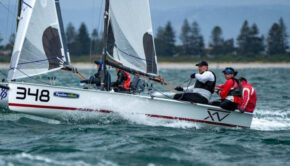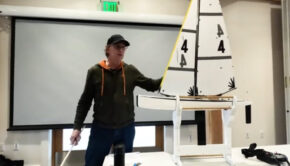Propagating Safety in Sailing Programs
Published on February 22nd, 2018
Captain Peter Alarie, professional sailor and senior instructor at Confident Captain in Rhode Island, explains why he believes that all coaches and professional sailors should obtain a captain’s license.
As a professional sailor, coach and instructor of captain’s courses, I work with sailors of all levels of experience. I have come to notice that many of them have no professional certifications from recognized organizations like the US Coast Guard or Royal Yachting Association.
Reasons range from “I don’t have time” to “I don’t see the point, I already have the job,” and even “I already know everything in those courses, I have sailed 50,000 miles since I was a kid.”
Time on the water does not necessarily translate into safe boating behavior. That is why I believe that all coaches and professional sailors, that is, hired mariners, should obtain a captain’s license for a multitude of reasons that go beyond the title of obtaining your “ticket.”
It propagates safety.
Getting a license does not make you perfect by any means. What it does is make you better than you were before you started the process. Isn’t that the goal of a great professional? To get better at each opportunity? Many sailors do not even have a basic understanding of the Rules of the Road outside of the racing rules. They will know starboard-over-port, windward-over-leeward and a slew of other Racing Rules of Sailing, yet have no idea about the COLREGS or give-way rules for marine traffic.
Furthermore, with our modern reliance on technology, I have come across professionals who do not use paper charts. The carrying of paper charts, for example, is just one way that all boaters can be safe in the event of a loss of GPS or power. But even more importantly, knowing how to read those charts to determine a fix is an art lost on most mariners.
Leading by example.
We all look to our coaches to be the leader of the program. But often in the states, we see kids go straight from the junior sailing program to the coach boat without proper training in powerboat safety. While sailing instructor courses teach the basics, many are under-prepared and do not have the knowledge that is required of other professionals operating a boat for hire.
Coaches and professional sailors are the men and women younger sailors look up to and aspire to be. The goal of any coach should be to set a precedent for the next generation to model.
Is it Legal?
“Why is it that yacht clubs require their launch drivers have a Coast Guard license, but don’t enforce the same requirement of their sailing instructors ferrying children back and forth on various powerboats?”
This doesn’t seem to make sense in that it would appear a license could be required by those carrying children aboard vessels. As Newport, RI admiralty attorney John K. Fulweiler explains: “The legal issues and particular circumstances require careful examination before determining whether licensure is required.
“However, the bottom line is that sailing programs need to squarely look at this issue. They need to speak to their insurers and legal counsel to understand what’s necessary to maintain compliance with the federal maritime law. Plus, the state law can supplement and there may be a requirement that a state boating license be obtained.”
At all yacht clubs, the launch driver must at least hold a USCG Launch Tender license, but the sailing instructor may only have a US Sailing Level 1 Instructor certification. While that does include a “Start Powerboating Right” course, technically this is not a legal certification under federal law.
Coaches and pro-sailors are hired professionals. At Confident Captain we are of the opinion that the most far reaching compliance with U.S. law is that all hired professional mariners must have a license.
There is always something to learn.
The best sailors I’ve met have made it a point to keep learning for their entire career. There is more to formalized training than the pencil and the chart. The interaction between professional mariners at Confident Captain during any of our courses has always brought the most valuable lessons and insight to the table. Spending two weeks in a formalized training setting with other professionals always produces great results.
It is better to be proactive towards answering difficult questions.
If you sail boats long enough, you know that accidents can happen. We hope one doesn’t happen to you. Should something go wrong and you find yourself in a position where you are answering hard questions from a domestic or foreign authority that is investigating an accident, there is going to be a pretty awkward silence when you look at that investigator and say, “I don’t have a professional license”.
It won’t sit well with anybody involved in the investigation. Take a proactive step toward fortifying your career ahead of time by getting a license and engaging in different types of formalized professional development. If your good name is called into question, you will be glad you did.









 We’ll keep your information safe.
We’ll keep your information safe.